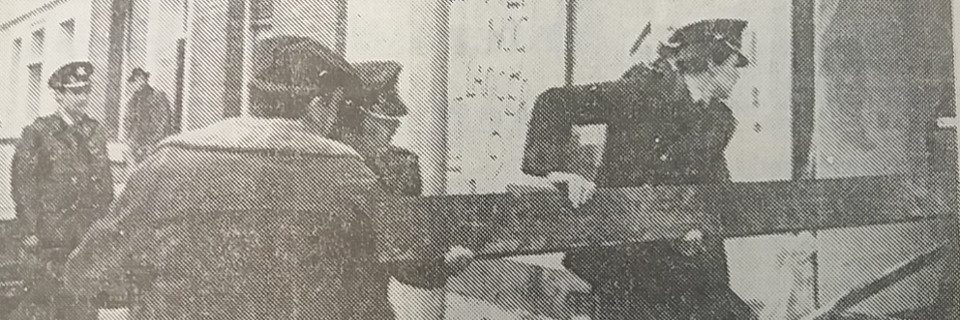Eliane Caffe’s docu-fiction hybrid charts the trials, tribulations and triumphs of homeless people and refugees living in an abandoned Sao Paolo hotel.
The Cambridge Squatter does a very difficult thing: It takes what essentially is a local interest story and elevates it into something universal and urgently contemporary. The local-interest story is that of homeless people in Sao Paolo in Brazil who occupied the titular hotel, but when you mix them up with a few refugees, then you have a story about homelessness in the larger sense of the word, and it’s between these two meanings that fourth-time director Eliane Caffe intelligently shuttles in a politically charged film whose warmth, vibrancy and good intentions outshine its flaws.
Cambridge Squatter was a winner of a San Sebastian Films in Construction award in 2015 and, now complete, deserves to fulfill its promise on the festival circuit. Releases in Brazil and Spain have already been scheduled.
Rather unpromisingly, early scenes show immense glass and concrete facades of abandoned buildings in Sao Paolo, of which there are apparently many, but where it is illegal to squat despite the city’s homeless problem. The immense former Hotel Cambridge is occupied by dozens of homeless people, a multicultural variety of human fauna, with the film focusing on the stories of a just a few. These include Hassam, a leathery-faced, hard-smoking and terminally charismatic Palestinian refugee who recites poetry of breathtaking power and beauty, living with his nephew Kalil, who doesn’t speak a word of Portuguese, and Ngandu, in exile from the Congo for presumably political reasons, we infer, involving the trade in blood minerals such as coltan, used in the manufacture of cellphones.
While the non-Brazilians are non-actors, some of the Brazilian residents are played by prom actors. They include the picturesque, charismatic Apolo (Jose Dumont, a regular of Caffe’s films), who delivers some of its most deliciously surreal lines of dialogue and who is setting up a theater group whose work will be shown on the blog the inhabitants have created to raise social awareness; an elderly, retired circus performer, Gilda (Suely Franco); and the redoubtable Dona Carmen, the residents’ spokeswoman and leader, respected by all (in one of the film’s curious elisions between fiction and life, she is played by real-life homeless persons’ activist Carmen Silva).
The hotel is to be repossessed in 15 days. The film details the preparations for this momentous event — which involve, later, the dramatically shot possession of another property, as police in riot gear fire on them all, with Dona Carmen instructing the residents to throw coconuts out of the windows at them. The backstories of some of the characters deliver human interest: a bit of footage of life down a Congolese coltan mine fleshes out Ngandu’s story (this is clever, and the film could have done with more of it); and there are images of Hassam sitting in the urban wasteland which would now be his home, had he not left Palestine. Skype calls home, often tense, are recorded, which suggest that though life is hard for those in exile, it’s harder for those who’ve remained.
But it’s not all doom and gloom and politics. At another level, the hotel is an example of cultures co-existing like a large family, with the day-to-day tensions which that implies but fundamentally living in peace. In the attempts at resistance, in the multilingual humor and in a budding cross-cultural love affair, there’s a gently inspiring, feel-good angle to it which is appealingly credible, unforced and unsentimental. Globalization has led to many evils, it seems to be saying, but our fellow-feeling will prevail.
The Cambridge Squatter (the Portuguese title, which translates as “It Was the Hotel Cambridge,” is altogether more evocative, and it’s hard to see why the English title is in the singular) is riskily poised between documentary and fiction, though clearly rooted in real facts. It’s a strategy that doesn’t always come off. Sometimes it has the look of raw fly-on-the-wall; sometimes, particularly through some of its clearly rehearsed dialogues, it looks a little too stagey, lending the project an unfocused, unsteady feel through some sections; and at other times, the political message is laid on with a trowel.
But in the parallels it draws between the homeless of Sao Paolo and the homeless of the world — refugees all, in the the scriptwriters’ view — this uneven film delivers a potent combination of empathy and food for thought, not unlike a coconut thrown at the establishment’s head.
http://www.hollywoodreporter.com/review/cambridge-squatter-era-o-hotel-934231
